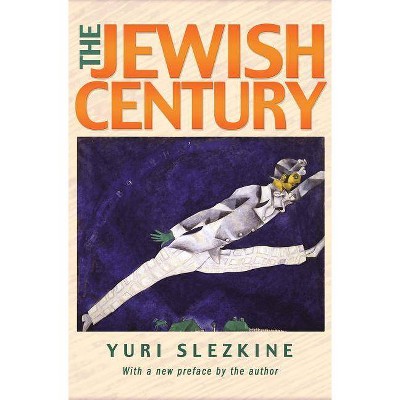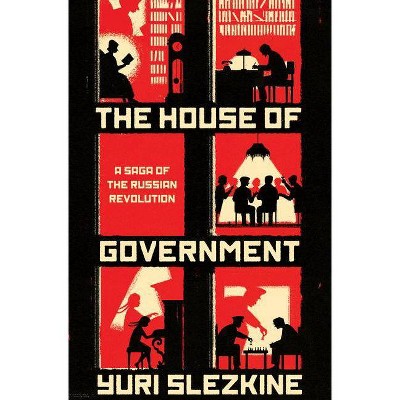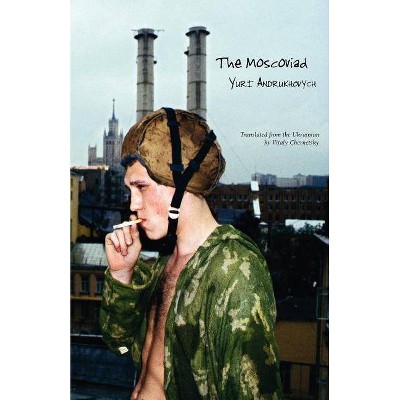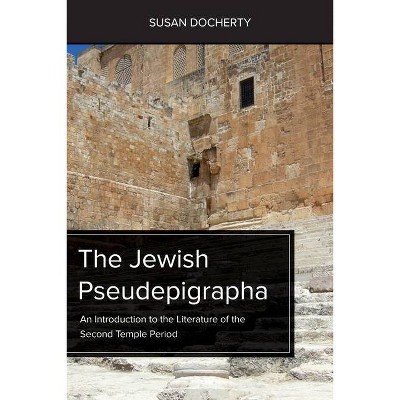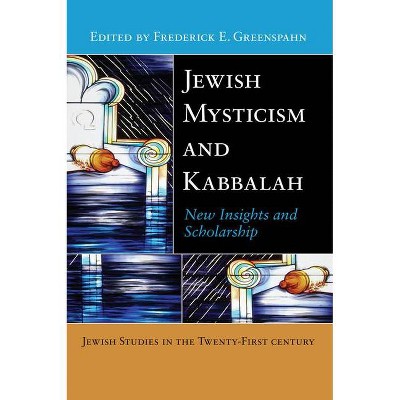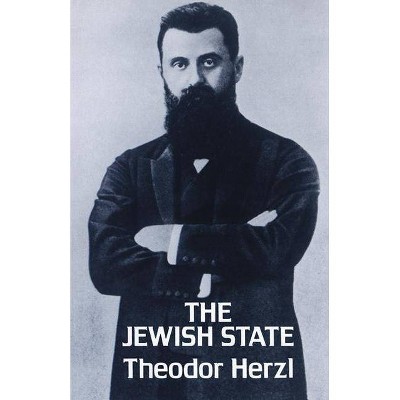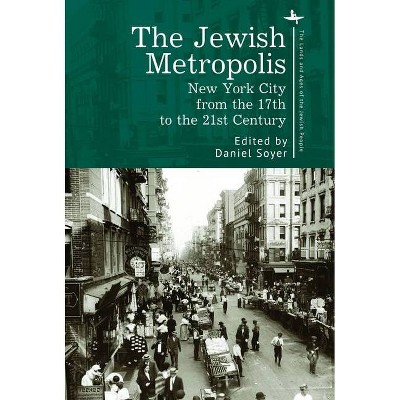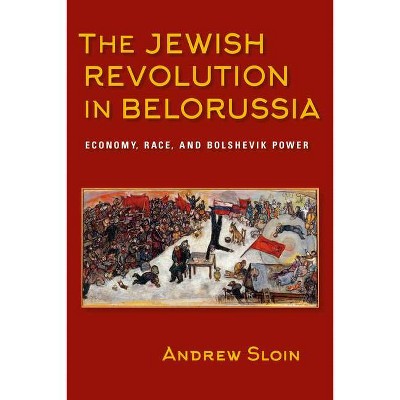The Jewish Century - by Yuri Slezkine (Paperback)
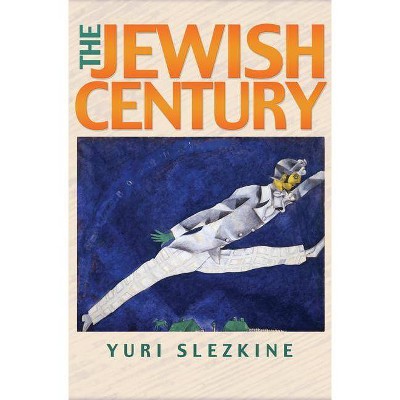
Similar Products
Products of same category from the store
AllProduct info
<p/><br></br><p><b> Book Synopsis </b></p></br></br><p>This masterwork of interpretative history begins with a bold declaration: The Modern Age is the Jewish Age--and we are all, to varying degrees, Jews. <p/>The assertion is, of course, metaphorical. But it underscores Yuri Slezkine's provocative thesis. Not only have Jews adapted better than many other groups to living in the modern world, they have become the premiere symbol and standard of modern life everywhere. <p/>Slezkine argues that the Jews were, in effect, among the world's first free agents. They traditionally belonged to a social and anthropological category known as service nomads, an outsider group specializing in the delivery of goods and services. Their role, Slezkine argues, was part of a broader division of human labor between what he calls Mercurians-entrepreneurial minorities--and Apollonians--food-producing majorities. <p/>Since the dawning of the Modern Age, Mercurians have taken center stage. In fact, Slezkine argues, modernity is all about Apollonians becoming Mercurians--urban, mobile, literate, articulate, intellectually intricate, physically fastidious, and occupationally flexible. Since no group has been more adept at Mercurianism than the Jews, he contends, these exemplary ancients are now model moderns. <p/>The book concentrates on the drama of the Russian Jews, including émigrés and their offspring in America, Palestine, and the Soviet Union. But Slezkine has as much to say about the many faces of modernity--nationalism, socialism, capitalism, and liberalism--as he does about Jewry. Marxism and Freudianism, for example, sprang largely from the Jewish predicament, Slezkine notes, and both Soviet Bolshevism and American liberalism were affected in fundamental ways by the Jewish exodus from the Pale of Settlement. <p/>Rich in its insight, sweeping in its chronology, and fearless in its analysis, this sure-to-be-controversial work is an important contribution not only to Jewish and Russian history but to the history of Europe and America as well.</p><p/><br></br><p><b> From the Back Cover </b></p></br></br><p>"Yuri Slezkine has written an extraordinary book with continual surprises. A landmark work."<b>--Ronald Suny, University of Chicago</b></p><p>"I can think of few works that match the conceptual range, polemical sharpness, and sheer élan of <i>The Jewish Century</i>. An extraordinary book: analytically acute, lyrical, witty, and disturbing all at once."<b>--Benjamin Nathans, author of <i>Beyond the Pale: The Jewish Encounter with Late Imperial Russia</i></b></p><p>"Yuri Slezkine's book is at the same time very personal and very erudite. A blend of political and cultural history at its best, it is a splendid work, beautifully written. A true accomplishment by a master historian."<b>--Jan T. Gross, author of <i>Neighbors</i></b></p><p>"Once every few decades, a book forces a reevaluation of basic assumptions in a field. Yuri Slezkine's passionate and brilliant tour de force not only challenges received wisdom about Russian and Soviet Jews, but just as provocatively overturns the uniqueness that many ascribe to Jewish history altogether. <i>The Jewish Century</i> is a work sure to spark heated debate not only about the Jews, but also about what it means to be modern."<b>--David Biale, editor, <i>Cultures of the Jews: A New History</i></b></p><p>"<i>The Jewish Century</i> is an extraordinarily stimulating and ambitious piece of work that invites debate and controversy. Slezkine's account is subtle, beautifully written, and very moving; it combines humor, irony, and understated passion."<b>--Tim McDaniel, author of <i>The Agony of the Russian Idea</i> (Princeton)</b></p><p>"This is a strong, well-documented, passionately argued, original, and bold essay on history, or the ideology of history, in what I called "a Jewish century" (see my Language in <i>Time of Revolution</i>). One wants to argue with the author on many pages of the manuscript, but it is such a powerful, sweeping statement that it must be left whole and intact, as a central position in future arguments on modernity, the twentieth century, and the history of the Jews."<b>--Benjamin Harshav, Yale University</b></p><p/><br></br><p><b> Review Quotes </b></p></br></br><br>Jews are not unique, [Yuri Slezkine] maintains in his fascinating new study, and it is only European provincialism that makes them seem that way. . . . Slezkin''s interpretation of Jewish history . . . is wonderfully antiparochial not only vis-à-vis the Jews but vis-à-vis America, which, he reminds us, not everyone saw as a promised land and which large portions of the huddled masses struggled to avoid.<b>---Daniel Lazare, <i>The Nation</i></b><br><br>This book is witty, sardonic and clever, written with zest and brilliant imagination and presents us with remarkable images of our recent past.<b>---John Levi, <i>Australian Jewish News</i></b><br><br>Winner of the 2005 Wayne S. Vucinich Book Prize, American Association for the Advancement of Slavic Studies<br><br>Yuri Slezkine's <i>The Jewish Century</i> defies standard categorization, and this makes it a masterly work of history.<b>---Marc Dollinger, <i>Journal of American History</i></b><br><br>Yuri Slezkine's work. . . . is a serious scholarly study of East European Jewry in the modern age, but dressed up in an eccentric and nonconventional style. . . . [An] immensely entertaining and diputatious book. . . . It is a work which will simultaneously inform, irritate, and entertain any reader with an interest in Russian, the Soviet, or modern Jewish history.<b>---John D. Klier, <i>Russian Review</i></b><br><br><i>The Jewish Century</i> revives, with intellectual sophistication and stylistic verve, an old perception of the Jew's centrality to modernity.<b>---Hillel Halkin, <i>Commentary</i></b><br><br><p>If Osama Bin Laden ever reads this book, he will be spinning in his<br>cave.</p><b>---Gene Sosin, <i>The New Leader</i></b><br><br>[T]his is a brilliant book--it is extremely well written. . . . Slezkine's book joins a very small number of first-rate studies of the modernization of the Jews seen through the lens of eastern rather than western history. . . . Buy the book; read the book; use the book in Russian history and Jewish culture classes.<b>---Sander L. Gilman, <i>Slavic Review</i></b><br><br>Brilliant and provocative.<b>---Rachel Polonsky, <i>Standpoint</i></b><br><br>Brilliant. . . . <i>The Jewish Century</i> is history on a majestic scale. . . . [It] is fresh, compelling and frequently startling. . . . The clarity of analysis is extraordinary, and the relatively simple conceptual tools Slezkine provides are unexpectedly powerful.<b>---Noah Efron, <i>Jerusalem Report</i></b><br><br>For Slezkine, Jews, urban, mobile, literate, flexible, have been role models of adaptability in a changing modern landscape.<b>---Joel Yanofsky, <i>National Post</i></b><br><br>One of the most innovative and intellectually stimulating books in Jewish studies in years. . . . [An] idiosyncratic, fascinating and at times marvelously infuriating study of the evolution of Jewish cultural and political sensibility in the 20th century. . . . Nearly every page of Slezkine's exegesis presents fascinating arguments or facts.-- "Publishers Weekly"<br><br>Reading Yuri Slezkine's scholarly arguments . . . may make for difficult reading but it also provides intriguing ventures into highly original thinking.-- "Jewish Book World"<br><br>This brilliant essay may significantly alter how we think about twentieth-century history. . . . The part that the Jews played in Soviet Russia, or, perhaps better, the part that Soviet Russia played in the cultural imagination of the Jews, lies at the heart of the book.<b>---Angus Walker, <i>Central Europe</i></b><br><br>To come across a daring, original, sweeping work of history in this age of narrow specialization is not just a welcome event; it is almost a sensation.<b>---Walter Laqueur, <i>Los Angeles Times</i></b><br><br>Winner of the 2004 Award for Best Professional/Scholarly Book in Religion, Association of American Publishers<br><br>Winner of the 2005 National Jewish Book Award, Ronald S. Lauder Award in Eastern European Studies, Jewish Book Council<br><p/><br></br><p><b> About the Author </b></p></br></br><b>Yuri Slezkine</b> is Professor of History and Director of the Institute of Slavic, East European, and Eurasian Studies at the University of California, Berkeley. He is the author of <i>Arctic Mirrors: Russia and the Small Peoples of the North</i> and coeditor of <i>In the Shadow of Revolution: Life Stories of Russian Women from 1917 to the Second World War</i> (Princeton).
Price History
Cheapest price in the interval: 34.99 on October 22, 2021
Most expensive price in the interval: 34.99 on November 8, 2021
Price Archive shows prices from various stores, lets you see history and find the cheapest. There is no actual sale on the website. For all support, inquiry and suggestion messages communication@pricearchive.us
